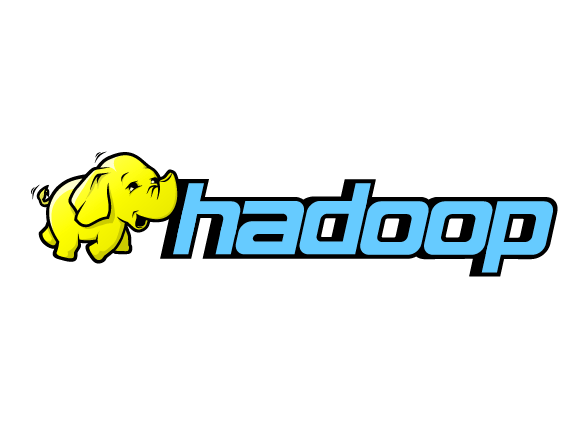
This global digital payments provider has provided online payment systems for nearly 30 years, seeing its highest rates of growth over the past ten years. Its user base expanded from over 150 million to more than 400 million customers worldwide which boosted its total payment volume from $200 billion to more than $1.5 trillion.
This led to their data
Read more

1. Executive Summary
A leading national payment and financial infrastructure provider transformed its analytics and fraud detection capabilities by migrating from a legacy Hadoop system to a modern data lakehouse powered by MinIO AIStor and Trino on Kubernetes. The shift delivered a 65% reduction in fraud model runtime, a fivefold increase in workload capacity, and significant cost savings by replacing
Read more

In the rapidly evolving TechBio industry, one innovative life sciences company puts technology at the forefront of its approach to drug discovery and experimentation. They operate one of the fastest privately owned supercomputers in the pharmaceutical sector, enabling unprecedented computational scale in biological research. Powered by a bespoke and AI-driven scientific operating system, their mission is to transform and accelerate
Read more

Government agencies must embrace AI responsibly, ensuring data sovereignty and security are top priority. To obtain sovereign AI, the right foundation must be in place to ensure infrastructure, data, and models remain fully controlled across agencies.
Read more

AIStor Tables brings Iceberg catalogs natively into on-prem object storage. It simplifies data organization, enforces table-aware security, and lets AI teams catalog unstructured assets in structured tables, thereby enabling discovery.
Read more

The format war is over, and Iceberg won. Every major engine now supports it, from Snowflake to Spark. Built for object stores, Iceberg delivers scale, consistency, and simplicity. It is the unified foundation for enterprise AI and analytics. Future-proof your data with Iceberg.
Read more

At MinIO, we believe the cloud operating model and a fully software-defined approach across every layer of the stack is the only path to enterprise agility, scalability, and operational efficiency. Building for "software-defined everything" has guided us from the start, with the goal of keeping modern IT environments as flexible and dynamic as the businesses they serve.
But
Read more

Delta Sharing + MinIO AIStor enables direct access to on-prem data from Databricks without data duplication. Organizations can now query their hybrid infrastructure through a single interface, eliminating storage costs and synchronization complexity.
Read more

A major financial institution turned their "outdated and escalating" Hadoop costs into savings by combining AIStor + Dremio on existing hardware. The hybrid approach delivered cloud elasticity while reusing their infrastructure, proving you don't need to rip-and-replace everything to modernize
Read more

Liberating data enables government agencies to modernize storage, cut hidden costs, and unlock mission-driven insights. By strategically curating, archiving, and aligning data with AI-driven priorities, agencies improve efficiency, compliance, and decision-making while preparing for the future.
Read more

Apache Iceberg 1.9.0 closes the gap with Delta Lake, adding row-level ops with lineage, JSON-friendly variant type, geospatial support, REST catalog upgrades, and easier Delta migration. Dropping Hadoop 2 and Spark 3.3 signals a modern focus, driving open table format convergence.
Read more

What is a Sovereign Cloud?
Look up the definition of “sovereignty” in any dictionary, and you will get a definition along the lines of “supreme power or authority.” So, a logical definition of “Sovereign Cloud” would be a cloud where a single governing entity like the European Union or the government of a single country can create acts and policies
Read more

Object storage is the primary storage solution for OLAP databases. This survey highlights major database players that have embraced this movement.
Read more

In today's data-driven world, object storage has emerged as the foundation for modern workloads including artificial intelligence (AI), machine learning (ML), and data lakehouse analytics. This is evidenced by the fact that all the major Large Language Models—OpenAI’s ChatGPT, Anthropic’s Claude, Google’s Gemini, etc.—are all built on object stores. And as organizations continue
Read more

Anyone who has worked in a team environment knows that every successful team has one go-to person—that special individual who can help you regardless of the nature of your problem. On a traditional software development team, this individual is an expert programmer and is also an expert in one other technology, which could be a database technology like Snowflake
Read more

OpenAI’s move this week to release two new open-weight AI models (gpt-oss-120b and gpt-oss-20b) just changed Enterprise Data Infrastructure forever. The news has rightfully made ripples across the tech ecosystem. Why?
* Because these models are released under the Apache 2.0 license, users can for the first time in 5 years, run OpenAI models right on their own devices.
Read more

Enterprises are moving AI and analytics workloads off public clouds to cut costs and regain control without sacrificing performance. Cloud repatriation brings cloud-native design on-prem.
Read more

SELinux will try to tag all files in the filesystem, causing the pod start to be delayed until all files are tagged, often when the PVC has a bigger amount of fies this will cause a timeout and the minio container will not even start.
Read more

The data lake was once heralded as the future, an infinitely scalable reservoir for all our raw data, promising to transform it into actionable insights. This was a logical progression from databases and data warehouses, each step driven by the increasing demand for scalability.
Yet, in embracing the data lake's scale and flexibility, we overlooked a critical difference.
Read more


























